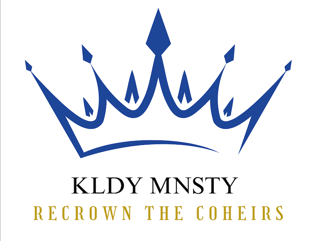Jonah | Kingdom Politics | A God Who Loves Our Enemies
What do you do when God sends you to deliver a word to people you cannot stand? What happens when God shows mercy to your enemy—and expects you to do the same? The story of Jonah is often boiled down to a big fish and a prophet on the run. But the heart of the story isn’t about Jonah’s disobedience or survival. It’s about the radical mercy of God—a mercy that challenges our politics, our pride, and our perspective. Let’s dig into Jonah chapter 3 and 4, and uncover how this short message to Nineveh reveals deep truths about Kingdom politics, forgiveness, and how we serve a God who loves even our enemies. A Short Message with a Massive Impact - Jonah 3:4 (AMP) “Jonah began to go into the city, and he walked one day’s journey; and he called out and said, ‘Forty days remain, and then Nineveh will be overthrown!’” Jonah preaches an eight-word sermon. That’s it. No altar call. No hope. Just judgment. But something incredible happens… Jonah 3:5-8 (AMP) The people of Nineveh believed God. From the king to the commoner, they humbled themselves, fasted, and repented—desperately crying out for mercy. And God heard. God Saw Repentance—and Responded with Mercy Jonah 3:10 (AMP) “When God saw their deeds, that they turned from their wicked way, then God had compassion... and He did not do it.” God changed His mind. Not because the message changed—but because the hearts of the people did. But instead of celebrating… Jonah was furious. Jonah’s Anger: When Mercy Feels Like Betrayal Jonah 4:1-2 (AMP) “...That is why I fled to Tarshish! I knew You were gracious and compassionate, slow to anger, and rich in love.” In other words: “God, I knew You’d forgive them. That’s why I didn’t want to come.” Let’s pause. Why was Jonah so upset? Why did this mercy make him feel so betrayed? Understanding Jonah’s Pain: A Political & Personal History Jonah wasn’t just being dramatic. His hatred toward Nineveh ran deep. Here's why: 1. The Assyrians Were Known for Terror Nineveh was the capital of the Assyrian empire—infamous for cruelty, mass violence, and mocking the nations they conquered. Think torture, destruction, forced worship, and relentless war (Nahum 3:1-4). To Jonah, the Assyrians weren’t just enemies—they were terrorists. 2. Assyria Had Attacked Israel—and Would Again They had already raided cities and kidnapped Israelites. Jonah likely had friends or family impacted by their violence. He knew their power. Years later, Assyria would destroy the Northern Kingdom of Israel completely. ➡️ For Jonah, preaching to Nineveh wasn’t just hard—it felt like betrayal. God’s Lesson: A Plant, a Prophet, and a Perspective Shift Still angry, Jonah waits outside the city to see what happens. God provides a plant to give him shade—Jonah is thrilled. But the next day, God sends a worm to destroy it. Jonah’s miserable again. God asks: “Do you have a right to be angry about the plant?” Jonah says, “Yes! Angry enough to die!” Then comes the divine mic drop: Jonah 4:10-11 (AMP) “You cared about a plant you didn’t create… yet you want Me to destroy 120,000 people—plus innocent animals? Shouldn’t I care about them?” Boom. Jonah loved a temporary plant more than eternal people. Kingdom Politics: Mercy Over Nationalism This wasn’t just a personal conflict—it was political. By sparing Nineveh, God made a political statement: His grace isn’t limited to one nation, one people, or one system. It’s not confined by military power, history, or pain. His kingdom breaks political lines and personal bias. Jonah wanted Nineveh destroyed for the sake of Israel’s future. But God’s plan was bigger than one country—it included the whole world. So, How Do We Love a God Who Loves Our Enemies? Let’s be honest: Sometimes, we’re Jonah. We want justice for others and mercy for ourselves. We want comfort, not conviction. We want God to love who we love—and punish who we don’t. But Jesus flips the script: Matthew 5:44 (AMP) “But I say to you, love your enemies and pray for those who persecute you.” Luke 6:27-28 (AMP) “Love your enemies, do good to those who hate you, bless those who curse you, pray for those who mistreat you.” It’s not easy. But it’s Kingdom. Because Kingdom love doesn’t require agreement—it requires obedience. And Kingdom mercy doesn’t pick sides—it pulls people in. Reflection: Who Is Your Nineveh? Who do you think is too far gone for God’s grace? Where have you let personal or political pain harden your heart? What do you do when God asks you to love who you’d rather avoid? Jonah reminds us: God’s mercy is uncomfortable, but it’s unstoppable. He is a God who loves our enemies—and teaches us how to do the same. Want to go deeper? Drop your thoughts or questions in the comments below. And if this message spoke to you, share it with someone else who needs to hear it. Let’s be people who carry grace—even when it’s hard. That’s Kingdom.
Ke'Lynn Brummell
5/8/20241 min read
About
Learn about our ministry and its mission.
Contact Us
hello@keladyministries.com
© 2025. All rights reserved.


